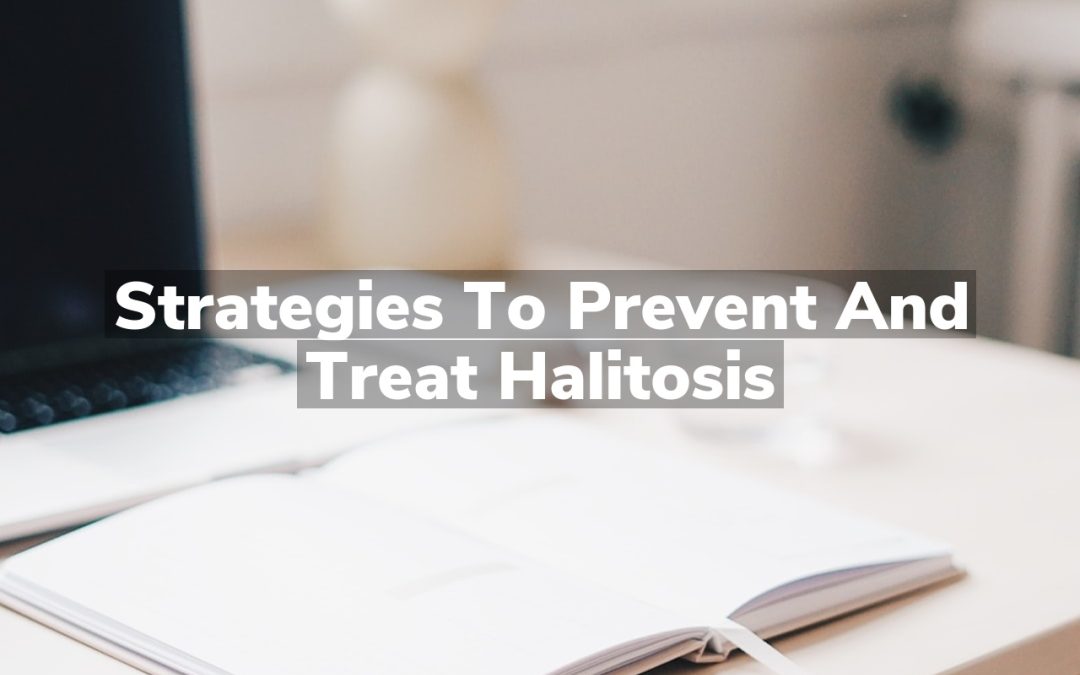Are you looking for strategies to prevent and treat halitosis? Comprehensive Dental Care can help you identify the underlying causes of bad breath and create an effective treatment plan to restore your oral health.
Brush Teeth
Brushing your teeth is the most important step in preventing and treating halitosis. It is important to brush your teeth twice a day, for two minutes each time. This will help to remove plaque and bacteria which can cause bad breath. Additionally, flossing and using an antibacterial mouthwash can help to reduce the amount of bacteria in your mouth. If you wear dentures, it is important to clean them regularly to prevent halitosis. Home Care for Broken False Teeth can help to keep your dentures clean and your breath fresh.
If you are unable to brush your teeth, chewing sugar-free gum can help to reduce the amount of bacteria in your mouth. This will help to reduce the amount of bad breath you have. Additionally, drinking plenty of water can help to keep your mouth moist and reduce the amount of bacteria present.
Floss Daily
Flossing is an essential part of any good oral hygiene routine. Flossing helps to remove food particles and plaque buildup from between teeth and along the gum line that a toothbrush cannot reach. This reduces the risk of halitosis, or bad breath, by removing the bacteria that causes it. Flossing daily is the best way to prevent and treat halitosis.
It is important to use the correct technique when flossing. Start by breaking off about 18 inches of floss and wind it around your middle fingers. Hold the floss tightly between your thumbs and index fingers and slide it gently between your teeth. Curve the floss around the base of each tooth and slide it up and down the side of the tooth. Be sure to floss both sides of each tooth and to use a fresh section of floss for each tooth. If you are having difficulty flossing, you may want to visit a dentist such as Comprehensive Dental Care for help.
Mouthwash Use
Mouthwash can be an effective tool for treating and preventing halitosis. Using a mouthwash that contains antibacterial and antifungal agents can help to reduce the amount of bacteria in the mouth, reducing the odors associated with bad breath. Additionally, some mouthwashes are designed to neutralize the odors associated with bad breath, leaving your mouth feeling fresh and clean. Be sure to read the directions on the mouthwash you choose, as some may require you to rinse for longer than others.
Regular Checkups
Regular checkups with your dentist are essential for preventing and treating halitosis. During your checkup, your dentist can check for any underlying issues that may be causing your bad breath, such as gum disease or cavities. They can also provide advice on how to improve your oral hygiene routine and suggest any necessary treatments. Regular checkups can help to ensure that any issues are caught early and treated promptly, reducing the risk of halitosis.
Diet Changes
Making changes to your diet can be an effective way to prevent and treat halitosis. Eating crunchy fruits and vegetables, such as apples, celery, and carrots, can help cleanse the mouth and remove odors. Additionally, chewing sugar-free gum can help stimulate saliva production, which helps to reduce bacteria in the mouth. Avoiding foods that are high in sulfur, such as garlic and onions, can also help reduce bad breath.
Conclusion
For more information on preventing tooth decay, contact Comprehensive Dental Care at 219-663-1207 or read reviews on Google Maps.

